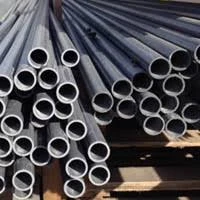
-
 Afrikaans
Afrikaans -
 Albanian
Albanian -
 Amharic
Amharic -
 Arabic
Arabic -
 Armenian
Armenian -
 Azerbaijani
Azerbaijani -
 Basque
Basque -
 Belarusian
Belarusian -
 Bengali
Bengali -
 Bosnian
Bosnian -
 Bulgarian
Bulgarian -
 Catalan
Catalan -
 Cebuano
Cebuano -
 China
China -
 China (Taiwan)
China (Taiwan) -
 Corsican
Corsican -
 Croatian
Croatian -
 Czech
Czech -
 Danish
Danish -
 Dutch
Dutch -
 English
English -
 Esperanto
Esperanto -
 Estonian
Estonian -
 Finnish
Finnish -
 French
French -
 Frisian
Frisian -
 Galician
Galician -
 Georgian
Georgian -
 German
German -
 Greek
Greek -
 Gujarati
Gujarati -
 Haitian Creole
Haitian Creole -
 hausa
hausa -
 hawaiian
hawaiian -
 Hebrew
Hebrew -
 Hindi
Hindi -
 Miao
Miao -
 Hungarian
Hungarian -
 Icelandic
Icelandic -
 igbo
igbo -
 Indonesian
Indonesian -
 irish
irish -
 Italian
Italian -
 Japanese
Japanese -
 Javanese
Javanese -
 Kannada
Kannada -
 kazakh
kazakh -
 Khmer
Khmer -
 Rwandese
Rwandese -
 Korean
Korean -
 Kurdish
Kurdish -
 Kyrgyz
Kyrgyz -
 Lao
Lao -
 Latin
Latin -
 Latvian
Latvian -
 Lithuanian
Lithuanian -
 Luxembourgish
Luxembourgish -
 Macedonian
Macedonian -
 Malgashi
Malgashi -
 Malay
Malay -
 Malayalam
Malayalam -
 Maltese
Maltese -
 Maori
Maori -
 Marathi
Marathi -
 Mongolian
Mongolian -
 Myanmar
Myanmar -
 Nepali
Nepali -
 Norwegian
Norwegian -
 Norwegian
Norwegian -
 Occitan
Occitan -
 Pashto
Pashto -
 Persian
Persian -
 Polish
Polish -
 Portuguese
Portuguese -
 Punjabi
Punjabi -
 Romanian
Romanian -
 Russian
Russian -
 Samoan
Samoan -
 Scottish Gaelic
Scottish Gaelic -
 Serbian
Serbian -
 Sesotho
Sesotho -
 Shona
Shona -
 Sindhi
Sindhi -
 Sinhala
Sinhala -
 Slovak
Slovak -
 Slovenian
Slovenian -
 Somali
Somali -
 Spanish
Spanish -
 Sundanese
Sundanese -
 Swahili
Swahili -
 Swedish
Swedish -
 Tagalog
Tagalog -
 Tajik
Tajik -
 Tamil
Tamil -
 Tatar
Tatar -
 Telugu
Telugu -
 Thai
Thai -
 Turkish
Turkish -
 Turkmen
Turkmen -
 Ukrainian
Ukrainian -
 Urdu
Urdu -
 Uighur
Uighur -
 Uzbek
Uzbek -
 Vietnamese
Vietnamese -
 Welsh
Welsh -
 Bantu
Bantu -
 Yiddish
Yiddish -
 Yoruba
Yoruba -
 Zulu
Zulu
GRP Piping Solutions for Efficient Water Management and Infrastructure Development
The Importance of GRP Piping Systems in Modern Infrastructure
Glass Reinforced Plastic (GRP) piping systems have become increasingly popular in various industries due to their unique properties and advantages over traditional materials. GRP, also known as fiberglass, is a composite material made by combining glass fibers with a polymer resin, resulting in a product that is lightweight, corrosion-resistant, and durable. In this article, we will explore the benefits, applications, and future prospects of GRP piping systems.
Advantages of GRP Piping Systems
One of the most significant advantages of GRP piping systems is their exceptional resistance to corrosion. Traditional metals such as steel and cast iron are prone to rust and deterioration when exposed to aggressive chemicals and environmental conditions. In contrast, GRP pipes do not corrode, making them ideal for applications involving harsh chemicals, seawater, and waste materials. This property not only extends the life of the piping system but also reduces maintenance costs significantly.
Another benefit of GRP pipes is their lightweight nature. Compared to traditional piping materials, GRP is significantly lighter, which simplifies transportation and installation. This reduction in weight can lead to lower labor costs, faster installation times, and reduced structural support requirements in construction projects. Furthermore, the flexibility of GRP piping allows for easier handling and installation in complex designs or tight spaces, making it an ideal choice for various applications.
GRP piping systems also boast excellent thermal and electrical insulation properties. This makes them suitable for transporting hot or cold liquids without losing temperature integrity and provides safety benefits in applications where electrical conductivity is a concern. Additionally, GRP pipes can withstand a wide range of temperatures, further enhancing their versatility in different environments.
Applications of GRP Piping Systems
grp piping system

GRP piping systems are widely used across various sectors, including water and wastewater management, chemical processing, oil and gas, and construction. In water and wastewater management, GRP pipes are used for transporting water, sewage, and industrial effluents due to their corrosion resistance and durability. Their ability to withstand harsh environments makes them a reliable choice for municipal projects and industrial facilities alike.
In the chemical industry, GRP pipes are utilized for transporting aggressive chemicals, acids, and corrosive substances. Their resistance to chemical reactions ensures that the integrity of the piping system is maintained, reducing the likelihood of leaks and environmental contamination. Moreover, the oil and gas sector benefits from GRP's lightweight nature, as it simplifies the logistics of transporting hydrocarbons in remote locations.
Future Prospects of GRP Piping Systems
As the demand for sustainable and reliable infrastructure continues to rise, the future of GRP piping systems looks promising. Advances in manufacturing technologies and materials science are expected to enhance the properties of GRP pipes, leading to even greater performance and efficiency. The growing emphasis on environmental sustainability and the reduction of carbon footprints will likely drive the adoption of GRP systems, as they require less energy to produce and maintain compared to traditional materials.
Moreover, innovations in smart technologies and monitoring systems can be integrated with GRP piping to provide real-time data on flow rates, pressure, and potential leaks. This will not only optimize the performance of the piping systems but also improve the overall management of water resources and chemical processes.
Conclusion
In conclusion, GRP piping systems present a robust, versatile, and cost-effective solution for modern infrastructure needs. With their impressive resistance to corrosion, lightweight nature, and wide range of applications, it is no wonder that GRP pipes are becoming the preferred choice for many industries. As technology continues to evolve and the emphasis on sustainable practices grows, GRP piping systems are set to play a crucial role in shaping the future of infrastructure development worldwide. Whether in water management, chemical processing, or construction, GRP piping systems are indeed a smart investment for the 21st century.









